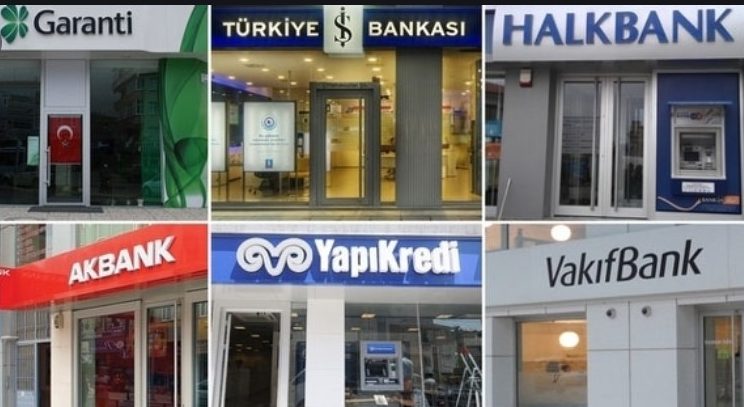Turkish banks saw slower loan growth in the fourth quarter of 2020 and their margins will remain compressed due to central bank interest rate hikes, ratings agency Fitch said.
Turkey’s return to a more orthodox monetary policy – the central bank increased its benchmark interest rate to 17 percent in December from 8.25 percent in September – underpinned banks’ access to external funding. But loan growth is likely to be constrained in the first half of the year at least, Fitch said in a report on Monday.
Local currency lending expanded by 2.8 percent in the fourth quarter compared with 7.2 percent in the three months to September, Fitch said. Total foreign exchange-adjusted credit growth slowed to 1.8 percent, it said.
The net interest rate margins of many banks tightened in the fourth quarter, led by state-run banks, Fitch said. That was particularly the case for Ziraat Bank and Halkbank, which have an above average share of local currency funding, it said.
Fitch said loan impairments rose materially at Ziraat Bank, Türk Ekonomi Bankası (TEB) and Dutch bank ING’s local unit, resulting in a net quarterly loss at ING.
Net interest margins at Garanti BBVA, Akbank, Yapı Kredi and Odea Bank widened due to higher yields on floating-rate securities, Fitch said.
Follow our English language YouTube videos @ REAL TURKEY: https://www.youtube.com/channel/UCKpFJB4GFiNkhmpVZQ_d9Rg
And content at Twitter: @AtillaEng
Facebook: Real Turkey Channel: https://www.facebook.com/realturkeychannel/
Turkey’s return to a more consistent and orthodox policy mix drove the appreciation in the Turkish lira in 4Q20 (4%) and underpinned Turkish banks’ access to external funding markets going into 2021. However, higher lira interest rates are likely to compress banks’ margins and constrain loan growth at least until end-1H21.
Margins Tighten Sharply
The average net interest margin (NIM) of the banks covered in this report fell by about 80bp in 4Q20 to 4.2%, reflecting the sector’s structural negative repricing mismatch. The NIMs of Garanti BBVA, Akbank, YKB and Odea (see page 3 for entity names) widened, due to higher yields on floating-rate lira securities (including inflation-linked) or loan repricing (up 310bp at Odea). The
NIM tightening was more acute at state banks (ranging from 130bp at Vakif to 220bp at Halk), reflecting their larger short-term repricing mismatches and above-average share of local-currency (LC) funding (Halk and Ziraat). The sector’s average cost of risk fell to 2.0% in 4Q20 (2020: 2.8%), reflecting banks’ front-loading of provisions earlier in the year, but remains above historical levels.
Loan impairments rose materially at Ziraat, TEB and INGBT, resulting in a quarterly net loss (4Q20: -5% return on equity) at INGBT.
Slower Loan Growth
Sector foreign-exchange adjusted credit growth slowed to 1.8% in 4Q20 as higher lira rates and waning government stimulus further curtailed LC lending (up 2.8%; 3Q20: 7.2%). Foreign-currency (FC) loans (in US Dollar terms) decreased at most banks, except at Vakif (up 7%), Denizbank (4%), Ziraat (2%), TEB and QNB Finansbank (1%), primarily reflecting working capital corporate lending.
